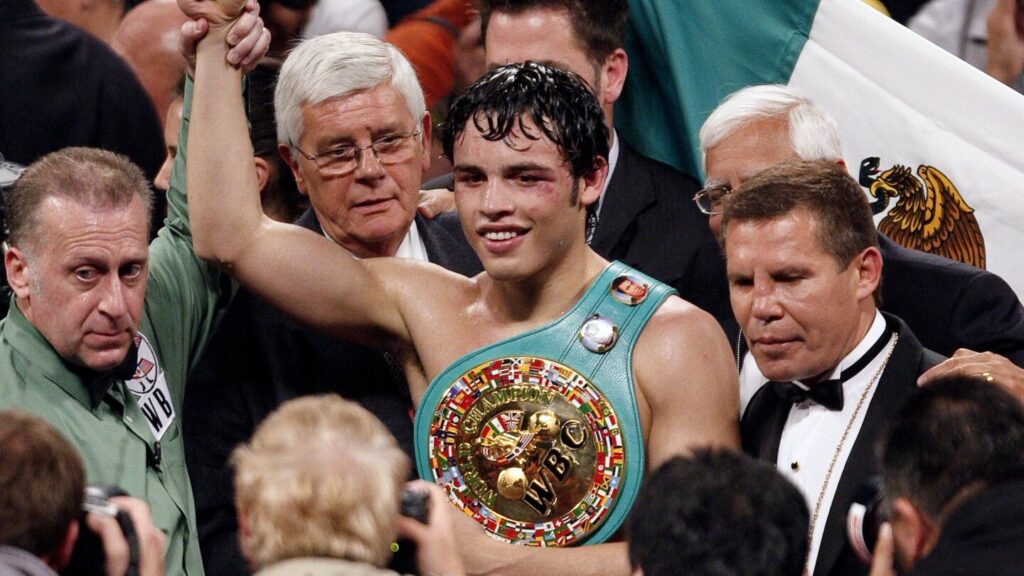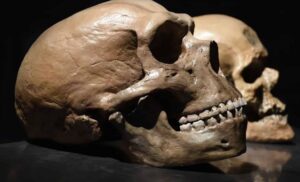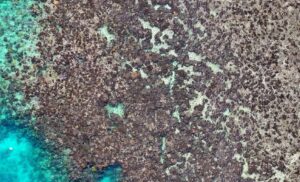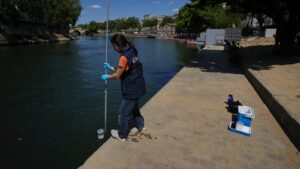
CULIACAN, Mexico — Inside a sports arena in Sinaloa state’s capital, the atmosphere was subdued as young amateur boxers sparred under the watchful eyes of a sparse crowd. Outside, a bronze statue of Julio César Chávez, a local hero, stood with one glove raised, symbolizing triumph. Yet, the absence of Chávez himself at the event, organized by his brother, was palpable. It had been a challenging week for the Chávez family.
Julio César Chávez Jr., the eldest son of “The Legend,” was arrested by U.S. immigration agents outside his Los Angeles home on Wednesday. He faces accusations of overstaying his visa and providing false information on a green card application. More troubling for residents of Culiacan, however, are the allegations from the U.S. Department of Homeland Security linking Chávez Jr. to arms and drug trafficking, with suggested ties to the notorious Sinaloa Cartel. The agency announced plans for his expedited removal.
The Legend’s Shadow
The name Julio César Chávez resonates deeply in Culiacan, akin to Diego Maradona’s in Argentina. Chávez, often referred to as “The Legend,” rose from humble beginnings to become a national boxing icon. His legacy is a source of immense pride for the city, and his story is one of triumph over adversity.
However, the narrative shifts when conversations turn to his son and the alleged connections to the Sinaloa Cartel. In a city where the cartel’s influence has long been a part of life, discussions about its activities have become increasingly muted following internal conflicts and a bloody feud last year.
Alleged Cartel Ties
During Friday night’s event, the arrest of Chávez Jr. was a topic of quiet conversation among attendees. Óscar Arrieta, a sports reporter in Culiacan, noted the significant impact of the arrest, particularly due to the “harsh” manner in which U.S. authorities linked him to organized crime.
The details of Chávez Jr.’s alleged cartel ties remain vague, with authorities only mentioning his marriage to a U.S. citizen connected to the family of Joaquín “El Chapo” Guzmán. Arrieta questioned why, despite a Mexican arrest warrant since 2023, no efforts had been made to detain Chávez Jr., who remained a public figure, active on social media and preparing for a high-profile fight in California.
“I think it was also a way for the United States to expose the Mexican government in a way, but without a doubt much more impactful, because normally sports doesn’t mix with anything else, much less with organized crime,” Arrieta said.
Community Reactions
In Culiacan’s boxing gyms, the mood was somber following the news of Chávez Jr.’s arrest. Jorge Romero, a former professional boxer and current trainer, expressed his support for Chávez Jr., describing him as “an excellent person, a great human being” who was dedicated to his training.
Romero, however, was cautious about addressing the alleged cartel ties, emphasizing that boxing and organized crime are separate entities in Culiacan. “We don’t have anything to do with organized crime,” he stated. “On the contrary, it’s a clean sport, very healthy from my point of view.”
Implications and Future Outlook
The arrest of Julio César Chávez Jr. has cast a shadow over the Chávez family’s legacy and raised questions about the intersection of sports and organized crime in Mexico. As the legal proceedings unfold, the case may have broader implications for how authorities handle similar situations involving high-profile figures.
For the people of Culiacan, the situation is a reminder of the complex realities they navigate daily, where the lines between public life and the underworld can sometimes blur. As the community grapples with the latest developments, the hope remains that the sport of boxing, at least, can maintain its reputation as a beacon of discipline and integrity.
The next steps in Chávez Jr.’s legal journey are awaited with bated breath, as they will not only determine his future but also potentially impact the broader narrative of crime and justice in the region.






